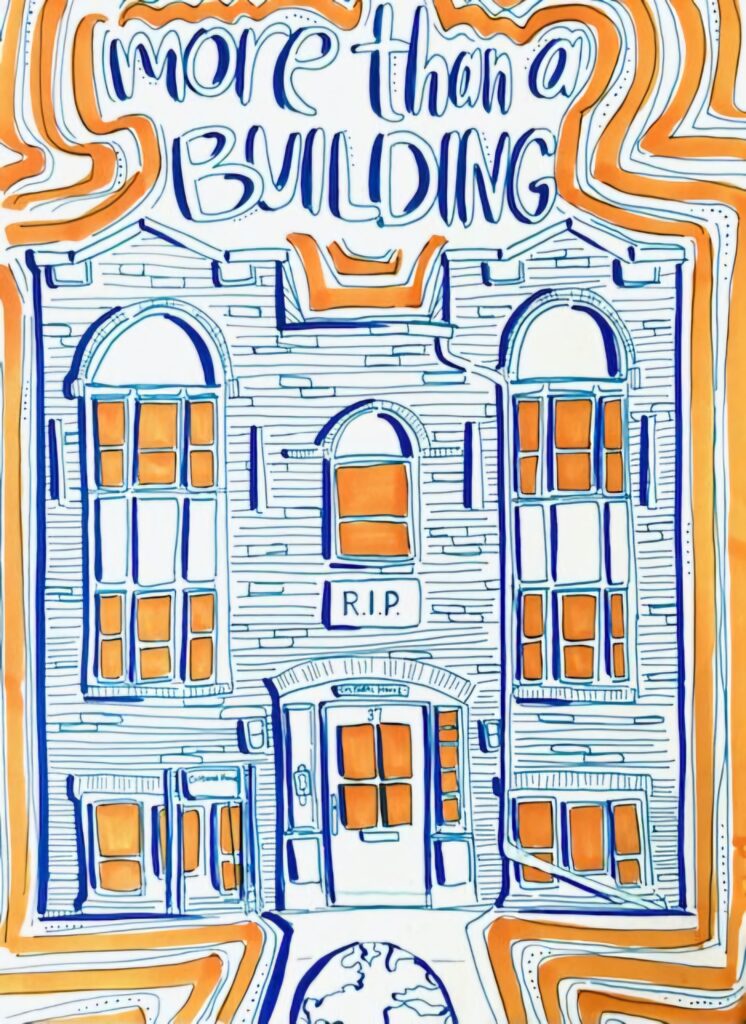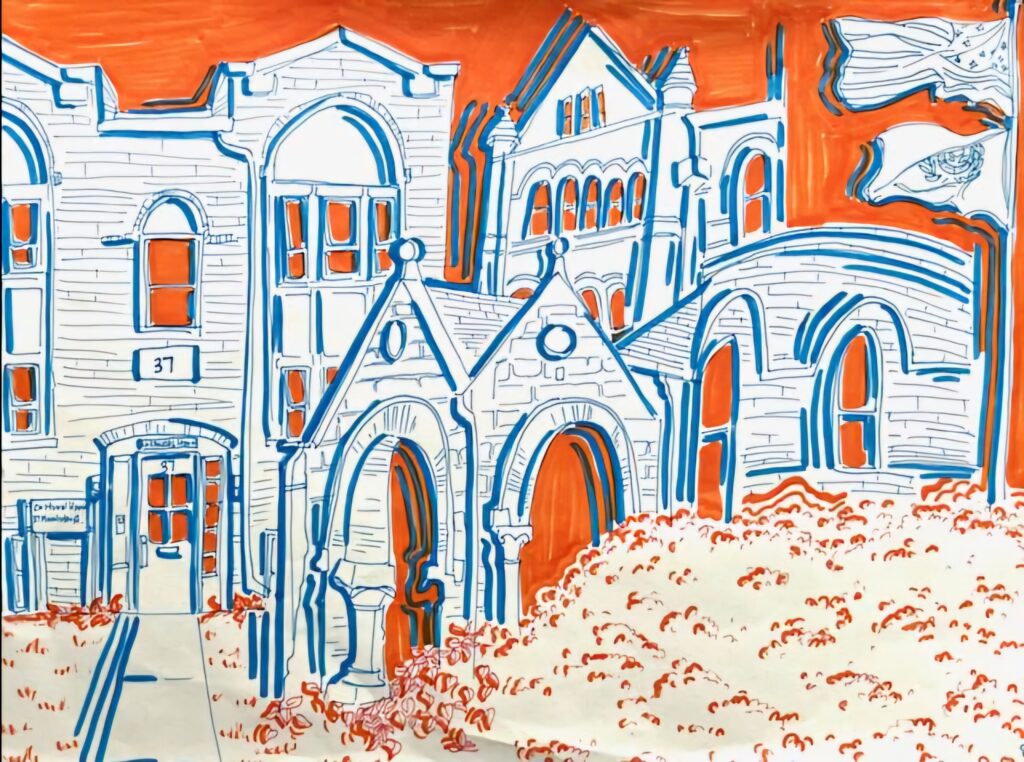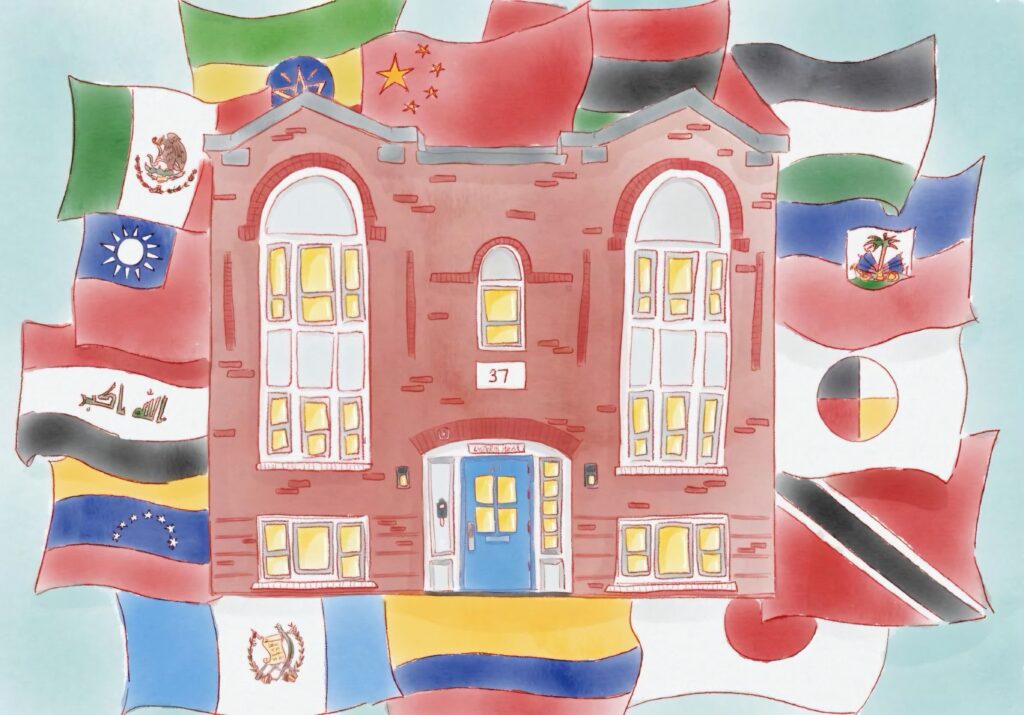In the 2023-24 Fall Semester, the residents of the Cultural House were enrolled in the EDU 194 First Year Course. Through this course, the first-year students looked at critical ethnic studies, local community activism, the global movement to decolonize higher education, and the history of Macalester (especially the enriching history of the Cultural House). This course examined the ways in which world-building, community collaboration, and student activism have existed and must exist at Macalester. This course focused on using said themes for students to create and develop their own philosophy of education and creed regarding their hopes and dreams for their time at Macalester.
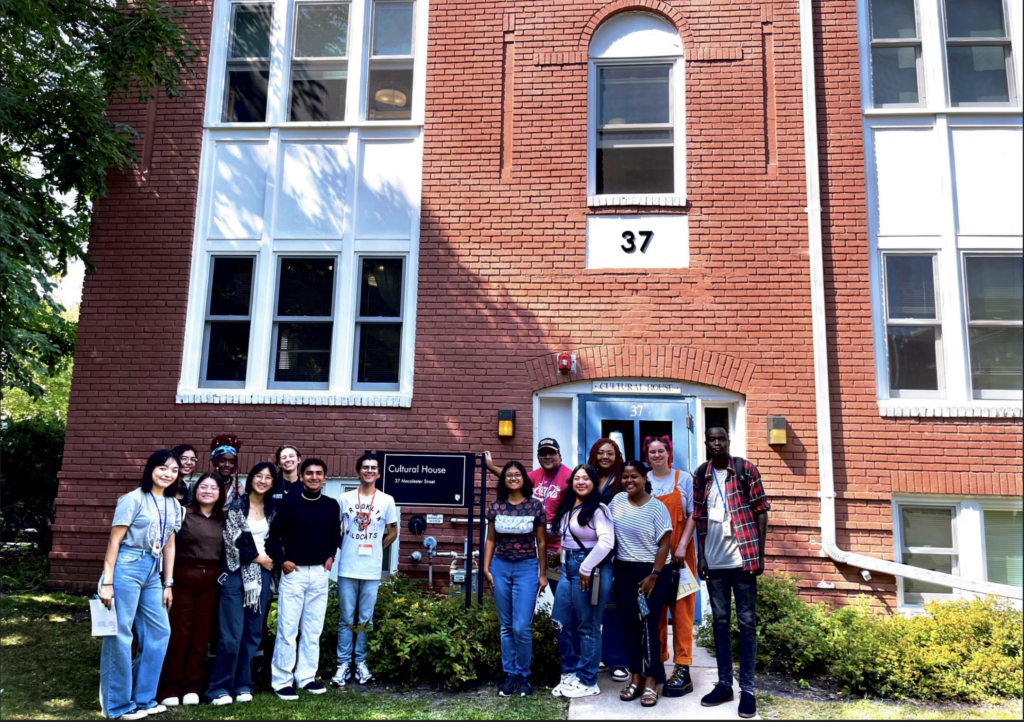
The Happening Place Documentary
The Happening Place, a short documentary created by Razik Saifullah ’24, honors the legacy of the Cultural House. This documentary offers a chance to reflect on and document the ongoing need for BIPOC-centered spaces on Macalester’s campus. It weaves together our history, highlighting past and present student efforts to claim space on campus. As the Cultural House faces demolition in the summer of 2025, this short film, supported by the Racial Justice Project Fund, serves as a celebration of its legacy. The C-House has served as a vibrant gathering space for BIPOC students, cultural organizations, and solidarity building, surviving through various iterations and locations. While the Lealtad-Suzuki Center continues to work with Senior Leadership to find a new permanent location for the house, this film honors the C-House’s significant impact on Macalester’s campus and beyond.
FYC Projects

In the wake of George Floyd’s murder and the subsequent uprising, Macalester students, especially BIPOC student leaders, struggled to make sense of the moment and sought tools for effective community organizing on and off campus. To address this need, Dr. Duchess Harris and I co-developed and co-taught a summer 2021 American Studies course titled “Ethnic Studies and Student Activism.” This course provided students with an intro to the history and systems of higher education and allowed students to connect with Faculty on campus engaged in Ethnic Studies work.
During the course evaluation, a key question emerged for the upper-class student leaders in the class: Where was this information when I was a first-year student? They believed having this information early on would have helped them navigate college life and better understand their experiences and roles as leaders of cultural and political student organizations.
In Spring 2023, when I was appointed Director of the Lealtad-Suzuki Center for Social Justice, I piloted a program transforming the Cultural House into a First-Year Course. While the Cultural House has traditionally fostered an anti-racism living-learning community, it wasn’t previously open to first-year students. Additionally, I wanted residents to grasp the connection between the Cultural House’s history and broader national student movements of the late 60s and 70s. I approached Dr. Gonzalo Guzman with the proposal to co-develop and co-teach this course with me, and he enthusiastically accepted! And with that, EDUC 194 – “We Demand! Student Power, World Building, and Democratizing Higher Education” was born. – Hana Dinku
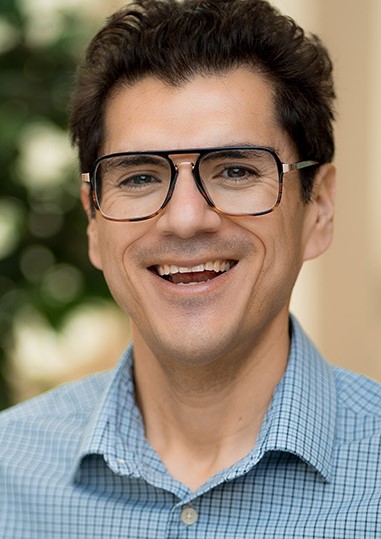
A central goal of our class was for students to envision an educational experience that they wish they had in their K-12 experience and manifest at Macalester. This is why we wanted a major assignment for the class for students to look how other students created their own space and education at Macalester. All the archives that each one of our students researched and reflected on built on their own positionality. In many ways it was acknowledging the work students did before them and building on it. One of the major achievements of this project (which is still ongoing), is that it showcases how much impact student activism has on generations afterwards. In many cases, the impact was unintended but yet the archives
inspired hope that student can make change and that they can inspire those to do the same afterwards. It was a case of building community with our ancestors and creating a larger vision of education that recognized the past and would create a better future. – Professor Gonzalo Guzmán
Cultural House Programming Website – Karla Martinez, Natalie Martinez, William Acosta, and Yamalí Rodas Figueroa
This website is dedicated to documenting and celebrating the impact of student-led grassroots movements, particularly those centered around the Cultural House. It highlights programs like TAPAS, Soup and Substances, and Xpressions, which not only provided activities for students but also served as pillars of community building and inclusivity. The website emphasizes the importance of these movements in promoting intersectionality and providing marginalized groups with safe space for dialogue and community building. It also acknowledges the lasting influence of student-led initiatives and the role of physical spaces, like the Cultural House, in fostering inclusivity and communal evolution on campus.
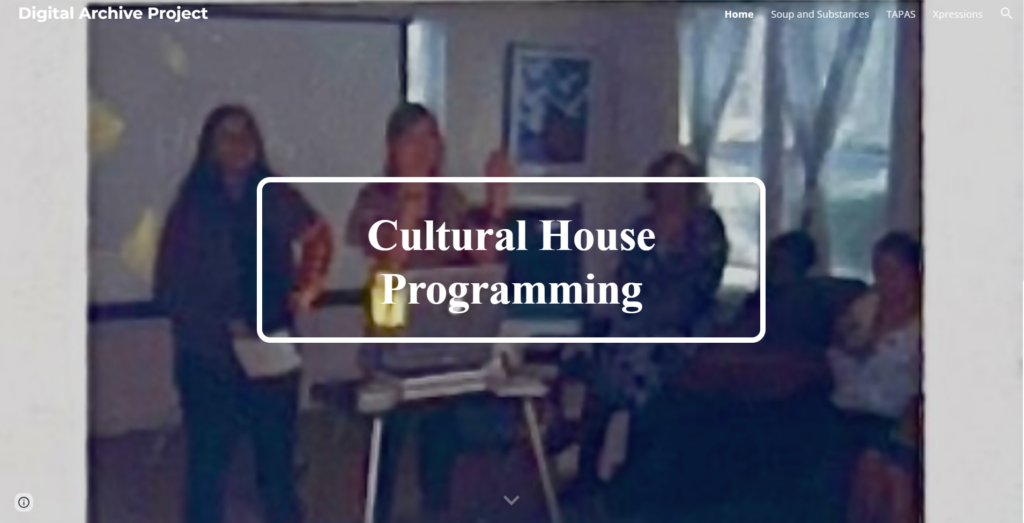
Slideshows – Gabriela Parra, Sanaya Cruickshank, Gabriela Vargas, Makol Chuol, and Azariah Baker
The following student-created slideshows offer insightful perspectives on a variety of topics crucial to the history of Macalester’s campus life and social dynamics. Covering themes such as the Cultural House, minority students and organizations, student activism, the Expanded Educational Opportunities (EEO) Program, Imani: The Black House publication, and refugee stories at Macalester, each presentation delves into the nuances and significance of these subjects. Through engaging primary sources and thoughtful narration, the slideshows provide a platform for sharing diverse experiences, fostering understanding, and amplifying voices that often go unheard. From celebrating cultural hubs to exploring the challenges and triumphs of marginalized communities, these presentations offer a glimpse into the rich history of student life and activism at Macalester.
Digital-Archive-Project_-Remembering-the-Culture_Gabriela-Parra Cultural-House-Archive-Project_Sanaya Archives-Project Makol_Voices-of-Resilience archive-slides-from-ZariReflection on PIPE – Annabelle Adachi
This reflection explores the history of the Proud Indigenous People for Education (PIPE) club in the 1970s, focusing on student organizing efforts. It highlights the impressive planning and coordination of a small group of students, evident in event flyers, memos, and meeting minutes. The organization’s ambition and dedication are underscored by the consistent involvement of certain students over the years and the extensive networking within and beyond the Macalester College community. The reflection culminates in the organization’s successful powwow, showcasing PIPE’s ability to collaborate with various groups and organize large-scale events. Overall, the reflection emphasizes the importance of thinking big and building on the achievements of past student activists.
Final-Class-Analysis-and-Reflection.docxArtwork – Jane He
- More Than A Building: Cultural buildings and spaces aren’t just buildings and spaces, they are and have been homes
- Old Main Overshadowing the Cultural House: What are institutional legacies and priorities?
- 2023-24 Cultural House Residents: Flags that represent the residents!
